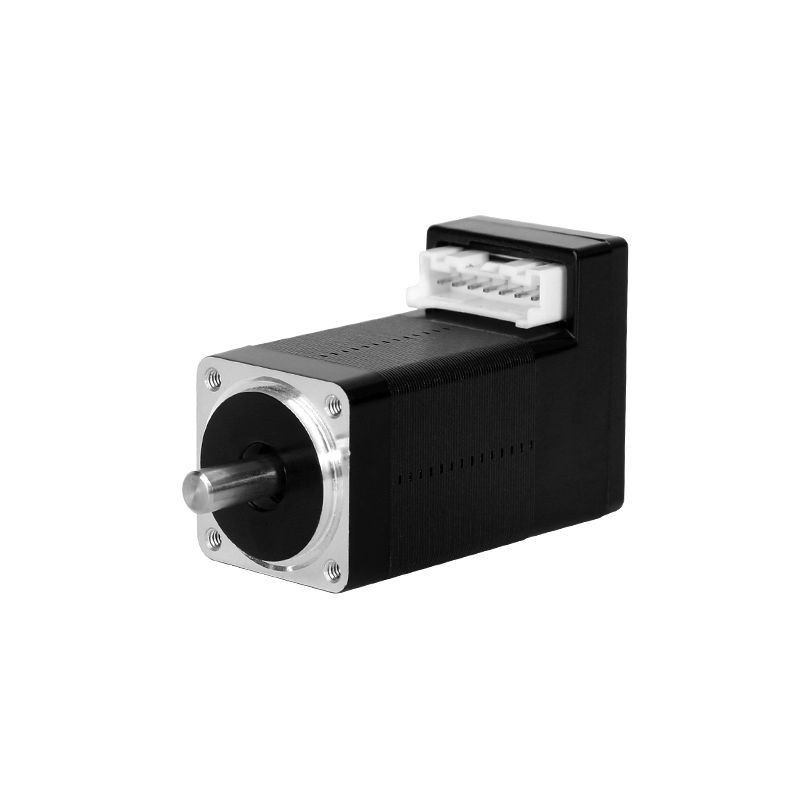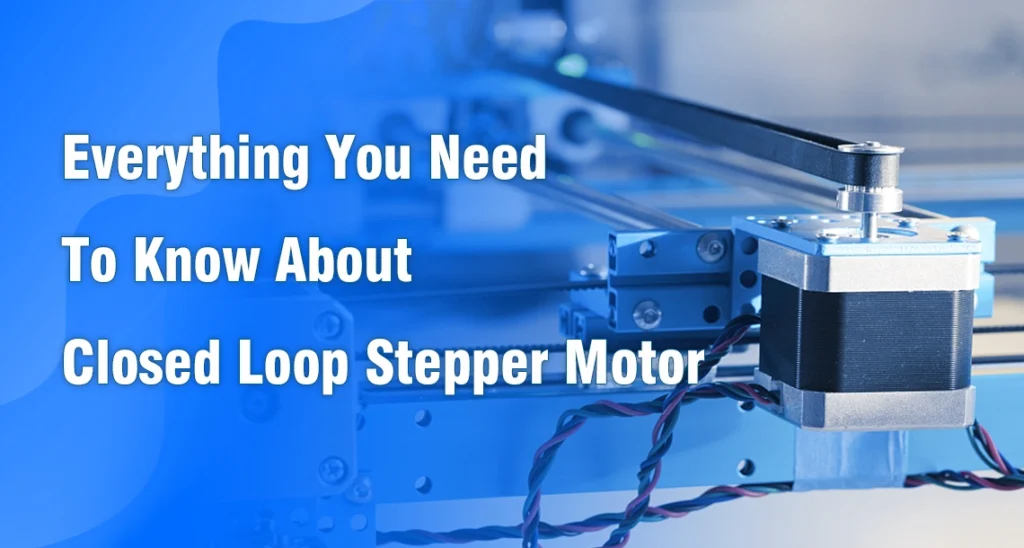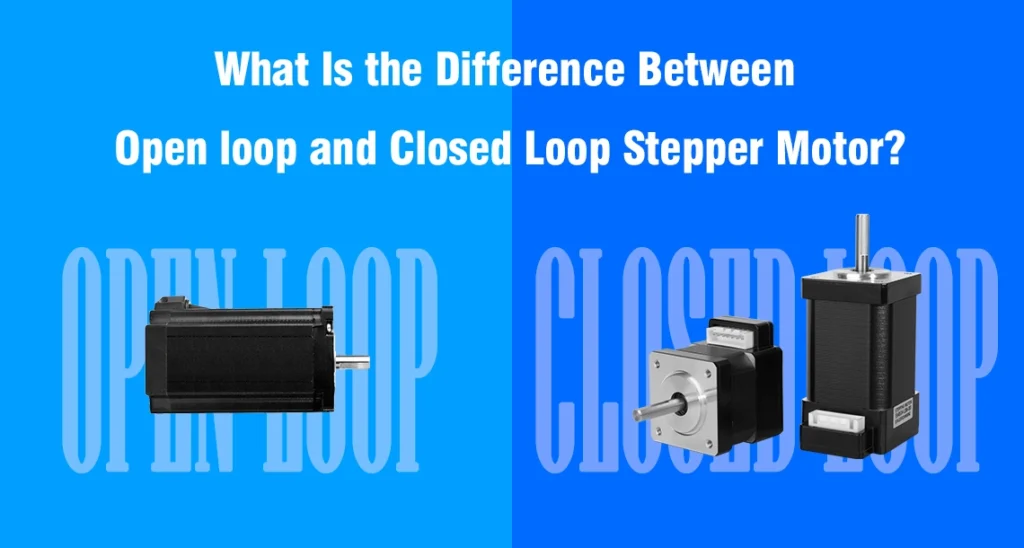Industrial automation continues to advance at a rapid pace, with each innovation aiming to streamline processes, increase efficiency, and reduce costs. Among these advancements, closed loop stepper motors stand out for their remarkable contributions to various industrial applications.
In this article, MXELECTRON delves deep into the advantages of closed loop stepper motors in industrial settings, exploring how these motors have revolutionized manufacturing, robotics, CNC machining, and more. Let’s explore five compelling reasons why closed loop stepper motors have become indispensable assets in modern industrial processes.
Enhanced Precision and Accuracy of Closed Loop Stepper Motors
Precision is paramount in industrial operations, where even the slightest deviation can lead to costly errors or product defects. Closed loop stepper motors offer unparalleled precision and accuracy, ensuring consistent performance across diverse applications.
By incorporating feedback mechanisms such as encoders, these motors can detect and correct errors in real-time, resulting in precise positioning and movement control. Whether it’s robotic assembly, 3D printing, or laser cutting, the ability to maintain precise motion profiles translates to higher-quality outputs and increased productivity.

Improved Torque and Power of Closed Loop Stepper Motors
Torque requirements vary widely across industrial tasks, from delicate handling operations to heavy-duty machining tasks. Closed loop stepper motors excel in delivering the required torque and power while maintaining operational stability.
Unlike open loop systems, closed loop configurations adjust motor parameters dynamically, optimizing torque output based on load conditions. This adaptive torque control ensures smooth operation even under challenging circumstances, such as sudden load changes or acceleration/deceleration phases. As a result, industrial processes can achieve higher throughput rates and handle a broader range of tasks with confidence.
Exceptional Reliability and Durability of Closed Loop Stepper Motors
In demanding industrial environments, reliability is non-negotiable. Closed loop stepper motors are renowned for their robust construction and exceptional durability, making them ideal for continuous operation in harsh conditions. By eliminating the risk of stalling or losing steps, these motors enhance system reliability and uptime, minimizing downtime and maintenance costs.
Moreover, their resistance to shock, vibration, and temperature fluctuations ensures consistent performance, even in the most challenging applications. Whether deployed in automotive assembly lines or semiconductor manufacturing facilities, closed loop stepper motors deliver reliable performance day in and day out.
Dynamic Adaptability and Flexibility of Closed Loop Stepper Motors
The adaptability of closed loop stepper motors makes them incredibly versatile across a wide range of industrial scenarios. With programmable motion profiles and customizable control parameters, these motors can adapt to evolving production requirements with ease.
Whether it’s adjusting speed, acceleration, or direction on the fly, closed loop systems offer unparalleled flexibility in response to changing operational needs. This dynamic adaptability enables seamless integration into existing automation systems, ensuring compatibility with PLCs (Programmable Logic Controllers), HMIs (Human-Machine Interfaces), and other control systems.
By harmonizing with the existing infrastructure, closed loop stepper motors facilitate streamlined communication and centralized control, enhancing overall system efficiency and productivity. From batch production to Just-In-Time manufacturing, closed loop stepper motors empower industrial facilities to achieve seamless integration and operational excellence in today’s dynamic market landscape.
Cost-Efficiency and ROI of Closed Loop Stepper Motors
While initial investments in closed loop stepper motors may seem higher compared to traditional motor solutions, the long-term benefits far outweigh the costs. The enhanced efficiency, productivity gains, and reduced maintenance expenses contribute to significant cost savings over the lifespan of the equipment.
Moreover, the precision and reliability of closed loop systems minimize material waste and rework, further enhancing operational efficiency and profitability. As industrial facilities strive to optimize resource utilization and maximize ROI, closed loop stepper motors emerge as a cost-effective solution that delivers tangible benefits across the board.
Conclusion: Empowering Industrial Innovation
In conclusion, closed loop stepper motors represent a paradigm shift in industrial automation, offering unmatched precision, reliability, and adaptability. From optimizing production processes to enhancing product quality, these advanced motors play a pivotal role in driving industrial innovation forward. By harnessing the advantages of closed loop stepper motors, manufacturers can unlock new opportunities for growth, efficiency, and competitiveness in today’s dynamic marketplace.
If you’re looking to enhance your industry’s competitive edge with closed loop stepper motors, welcome to share your requirements with us today!
FAQs
- Do closed loop stepper motors require specialized maintenance?
While closed loop stepper motors are known for their reliability and durability, regular maintenance is still recommended to ensure optimal performance. This may include periodic inspections, lubrication of moving parts, and calibration of feedback sensors to maintain accuracy and efficiency.
- What are the typical applications of closed loop stepper motors in industrial settings?
Closed loop stepper motors find applications across various industrial sectors, including robotics, CNC machining, packaging, textiles, and automotive assembly. Their versatility, precision, and reliability make them indispensable components in modern manufacturing processes.
- Can closed loop stepper motors help reduce energy consumption in industrial facilities?
Yes, closed loop stepper motors can contribute to energy savings by optimizing motor performance and reducing idle power consumption. By adjusting torque output based on load requirements and minimizing unnecessary movements, these motors enhance overall energy efficiency in industrial applications.
- Are closed loop stepper motors compatible with different communication protocols?
Yes, closed loop stepper motors support various communication protocols, allowing seamless integration with PLCs (Programmable Logic Controllers), HMI (Human-Machine Interfaces), and other control systems. This interoperability ensures compatibility with existing infrastructure and facilitates centralized control and monitoring.
- How reliable are closed loop stepper motors in industrial environments?
Closed loop stepper motors are highly reliable, featuring robust construction and advanced feedback control systems that ensure consistent performance over prolonged periods. With minimal maintenance requirements and exceptional durability, these motors offer long-term reliability, maximizing uptime in industrial settings.
- Can closed loop stepper motors adapt to changing production demands?
Certainly, closed loop stepper motors offer increased flexibility and adaptability, accommodating diverse operating conditions without compromising performance or accuracy. This enables businesses to respond swiftly to changing production demands, fostering agility and resilience in competitive environments.
- Do closed loop stepper motors contribute to energy savings?
Yes, closed loop stepper motors optimize energy consumption by operating at variable speeds and torque levels based on real-time load requirements. This results in significant energy savings compared to traditional motors that operate at fixed speeds.




